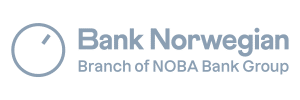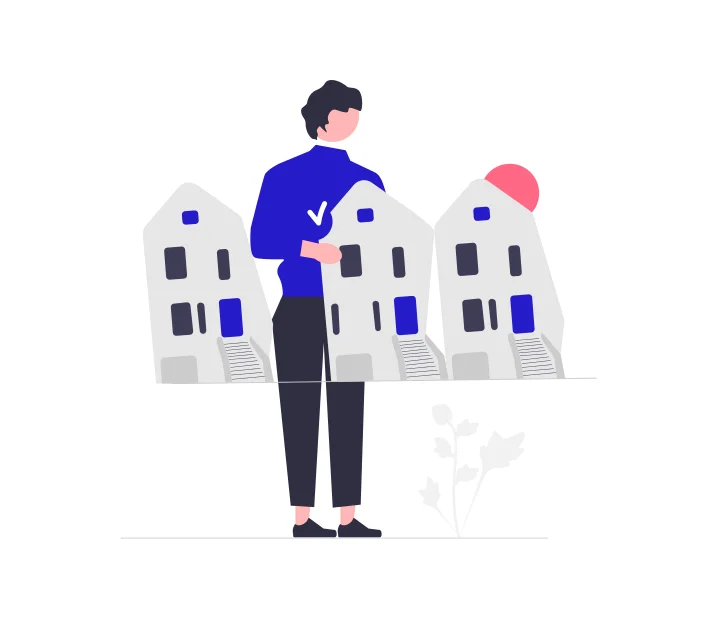Get a House loan today
Mortgage Loan Sweden
Free, 100% digital mortgage loan comparison
Save money with lower interest rates
Instant answers from up to 39 Swedish lenders
Recommended

Amount
SEK 5.000 – 800.000
(≈ USD 500 – 83.000)
Term
12-240 months
Interest rate
4,95 – 23%
Example: Annuity loan 12 years, amount 400,000 SEK, variable interest rate 7.99%, arrangement cost 400 SEK, avi fee 20 SEK, gives an effective interest rate of 8.41%. Total amount to be repaid 626,457 SEK, divided into 144 repayments, gives a monthly cost of 4,348 SEK. Repayment period 1-20 years. Maximum interest rate is 23.00%. Interest rate range between: 4.95% – 23.00%. Updated 2025-03-01
Borrowing costs money.
If you are unable to repay your debt on time, you risk getting a payment default. This can make it harder to rent a home, sign contracts, or obtain new loans. For support, contact the municipal budget and debt counselling service. You can find contact information at konsumentverket.se.

Amount
SEK 10.000 – 50.000
(≈ USD 1.000 – 5.200)
Term
24-72 months
Interest rate
16,95 %-22,95 %
Example: A loan of SEK 25,588 taken out on 2025-06-30 at a variable interest rate of 19.95 percent with a repayment period of 72 months entails 72 installments of approximately SEK 660, SEK 588 in arrangement fee and SEK 49 in monthly administration fee. This gives an effective interest rate of a total of 27.10 percent and a total repayment of SEK 48,096.62.
Borrowing costs money.
If you are unable to repay your debt on time, you risk getting a payment default. This can make it harder to rent a home, sign contracts, or obtain new loans. For support, contact the municipal budget and debt counselling service. You can find contact information at konsumentverket.se.

Amount
SEK 5.000 – 90.000
(≈ USD 500 – 9.300)
Term
12-72 months
Interest rate
20%
Verified Company
Borrow without credit check from UC
Payment on the same day
Example: A loan of SEK 30,000 at 20% nominal fixed interest, SEK 300 arrangement fee, SEK 30 monthly administration fee with a repayment period of 60 months gives an effective interest rate of a total of 25.03%. Arrangement fee is paid with the first monthly payment. This gives a total of SEK 49,957.85 to be repaid in 60 installments of SEK 832.64.
Borrowing costs money.
If you are unable to repay your debt on time, you risk getting a payment default. This can make it harder to rent a home, sign contracts, or obtain new loans. For support, contact the municipal budget and debt counselling service. You can find contact information at konsumentverket.se.

Amount
SEK 10.000 – 600.000
(≈ USD 1.000 – 63.000)
Term
12-180 months
Interest rate
6,23 % – 27,80 %.
Verified Company
You will receive an offer immediately
Collect small loans and credits
Example: For a personal loan of SEK 135,000 that is repaid over 10 years with an interest rate of 10.99% (incl. monthly fee of SEK 19 and arrangement fee of SEK 399), the effective interest rate is 11.91%. You pay SEK 1,883/month (SEK 1,864 is the amortization, SEK 19 is the monthly fee and the number of installments is 120), i.e. a total amount of SEK 226,003. The interest rate is variable and can vary from 5.99% to 18.99%. The effective interest rate can vary from 6.23% to 27.80% (October 2025).
Borrowing costs money.
If you are unable to repay your debt on time, you risk getting a payment default. This can make it harder to rent a home, sign contracts, or obtain new loans. For support, contact the municipal budget and debt counselling service. You can find contact information at konsumentverket.se.

Amount
SEK 5.000 – 800.000
(≈ USD 500 – 83.000)
Term
12-240 months
Interest rate
4,95% – 23%
Example: Annuity loan 12 years, amount 400,000 SEK, variable interest rate 7.99%, arrangement cost 400 SEK, avi fee 20 SEK, gives an effective interest rate of 8.41%. Total amount to be repaid 626,457 SEK, divided into 144 repayments, gives a monthly cost of 4,348 SEK. Repayment period 1-20 years. Maximum interest rate is 23.00%. Interest rate range between: 4.95% – 23.00%. Updated 2025-03-01
Borrowing costs money.
If you are unable to repay your debt on time, you risk getting a payment default. This can make it harder to rent a home, sign contracts, or obtain new loans. For support, contact the municipal budget and debt counselling service. You can find contact information at konsumentverket.se.

Amount
SEK 10.000 – 150.000
(≈ USD 1.000 – 15.800)
Term
24-144 months
Interest rate
22,95 %
Example:*Annuity loan 5 years, effective annual interest rate 26.5%. A loan of SEK 60,000 costs SEK 1,709/month (60 installments), a total of SEK 42,821 incl. SEK 199 in arrangement fee and SEK 19 in avia fees. 22.95% nominal interest. Variable interest rate. Banky collaborates with Nordiska Kreditmarknadsaktiebolaget. Updated 2025-02-28.
Borrowing costs money.
If you are unable to repay your debt on time, you risk getting a payment default. This can make it harder to rent a home, sign contracts, or obtain new loans. For support, contact the municipal budget and debt counselling service. You can find contact information at konsumentverket.se.

Amount
SEK 10.000 – 800.000
(≈ USD 1.000 – 83.000)
Term
12-144 months
Interest rate
4,95 %-23 %
Example: Annuity loan 12 years. Effective annual interest rate 9.63%. A loan of SEK 200,000 then costs SEK 2,302/month (144 installments), i.e. a total of SEK 331,495. No start-up/termination fee. 9.23% nominal interest rate (variable interest rate, set individually based on your circumstances). The application will be sent to the lenders that best match your profile, updated 2025-01-09.
Borrowing costs money.
If you are unable to repay your debt on time, you risk getting a payment default. This can make it harder to rent a home, sign contracts, or obtain new loans. For support, contact the municipal budget and debt counselling service. You can find contact information at konsumentverket.se.

Amount
SEK 1.000 – 20.000
(≈ USD 105 – 2.000)
Term
12-36 months
Interest rate
22 %
Example: Borrow SEK 15,000 for 24 months. Total repayment SEK 18,847, or SEK 785 per month. Annual fixed interest rate 22%. Effective annual interest rate 28%, Set-up fee SEK 350. Total cancellation fees SEK 59.
Borrowing costs money.
If you are unable to repay your debt on time, you risk getting a payment default. This can make it harder to rent a home, sign contracts, or obtain new loans. For support, contact the municipal budget and debt counselling service. You can find contact information at konsumentverket.se.

Amount
SEK 2.000 – 200.000
(≈ USD 210 – 21.000)
Term
4-19 months
Interest rate
23 %
Example: A credit of SEK 14,000 at 23.00% interest with a repayment period of ten months (with ten repayments of SEK 2,542, SEK 1,889, SEK 1,860, SEK 1,832, SEK 1,803, SEK 1,775, SEK 1,746, SEK 1,718, SEK 1,689 and SEK 1,661) and SEK 588 in arrangement fee, SEK 1,780 in Minimum to pay amount and SEK 600 in avi fees gives an effective interest of a total of 78.26%. The total amount to repay is SEK 18,517.
Borrowing costs money.
If you are unable to repay your debt on time, you risk getting a payment default. This can make it harder to rent a home, sign contracts, or obtain new loans. For support, contact the municipal budget and debt counselling service. You can find contact information at konsumentverket.se.

Amount
SEK 5.000 – 800.000
(≈ USD 500 – 84.000)
Term
12-240 months
Interest rate
4,9 – 22,95 %
Example: A credit of SEK 14,000 at 23.00% interest with a repayment period of ten months (with ten repayments of SEK 2,542, SEK 1,889, SEK 1,860, SEK 1,832, SEK 1,803, SEK 1,775, SEK 1,746, SEK 1,718, SEK 1,689 and SEK 1,661) and SEK 588 in arrangement fee, SEK 1,780 in Minimum to pay amount and SEK 600 in avi fees gives an effective interest of a total of 78.26%. The total amount to repay is SEK 18,517.
Borrowing costs money.
If you are unable to repay your debt on time, you risk getting a payment default. This can make it harder to rent a home, sign contracts, or obtain new loans. For support, contact the municipal budget and debt counselling service. You can find contact information at konsumentverket.se.

Amount
SEK 1.000 – 30.000
(≈ USD 105 – 3.000)
Term
8-180 months
Interest rate
23 %
Example: Utilized credit of SEK 30,000 for 12 months, total repayment of SEK 35,645 (average SEK 2,970 per month). Effective annual interest rate: 39.31%. Account credit with variable nominal annual interest of 20% plus the reference interest rate currently 23%. Fees: Set-up fee SEK 395. Withdrawal fee SEK 195. Monthly administrative fee: SEK 99. The loan example assumes a withdrawal with a fee, an set-up fee and 12 monthly administrative fees.
Borrowing costs money.
If you are unable to repay your debt on time, you risk getting a payment default. This can make it harder to rent a home, sign contracts, or obtain new loans. For support, contact the municipal budget and debt counselling service. You can find contact information at konsumentverket.se.
Mortgage loans in Sweden provide a pathway for individuals and families to purchase residential property, whether it’s for a primary residence, a second home, or an investment property. These loans are secured against the property itself, offering various terms and interest rates based on the borrower’s financial profile and market conditions.
Understanding the nuances of mortgage loans in Sweden, including the types of mortgages available, interest rate options, and repayment structures, is crucial for prospective borrowers. Making an informed decision can lead to significant long-term savings and a mortgage plan that aligns with one’s financial goals and lifestyle.
Eligibility and Requirements
To qualify for a mortgage loan in Sweden, prospective borrowers must meet specific eligibility criteria and requirements, which are essential for lenders to assess their ability to repay the loan.
Income and Employment
Lenders will closely examine your income and employment history to ensure you have a stable and reliable source of earnings to cover the mortgage payments. Proof of steady employment and income documentation, such as payslips or tax returns, is typically required.
Credit History
Your credit history plays a pivotal role in the mortgage application process. Lenders use this information to gauge your financial responsibility and past behavior with credit. A good credit score can significantly improve your chances of securing favorable mortgage terms.
Debt-to-Income Ratio
This ratio is a critical factor for lenders, as it indicates the proportion of your income that goes towards repaying debts. A lower debt-to-income ratio suggests that you are less risky and more likely to manage mortgage payments effectively.
Down Payment
In Sweden, borrowers are usually required to provide a down payment, which is a percentage of the property’s purchase price. The size of the down payment can influence the loan’s interest rate and terms.
Property Valuation
Before approving a mortgage, lenders will require a professional appraisal of the property to ensure its value aligns with the loan amount. This valuation protects the lender’s interests by ensuring the property’s worth covers the loan amount in case of default.
Meeting these requirements is the first step toward securing a mortgage in Sweden, setting the foundation for purchasing your desired property.
Calculate your mortgage in Sweden
Before applying for a mortgage, it’s important to understand how your income, interest rate, and loan term affect your monthly payments. Whether you’re buying your first home or switching banks, a quick mortgage calculation helps you plan realistically.
To make this easier, we’ve built a dedicated mortgage calculator for Sweden. It allows you to estimate both your monthly cost and how much you can borrow – based on Swedish lending rules. You can compare different rates, terms, and income levels instantly.
Use it to test scenarios alone or with a partner and get a clearer idea of your budget before contacting lenders.
How to Apply for Your House Loan

Applying for a house loan in Sweden is a significant financial decision and requires a meticulous approach to ensure you secure a mortgage that aligns with your financial objectives and capabilities.
The process involves several key steps, from initial financial assessment to the final loan closing, each crucial for the success of your loan application and the affordability of your future home.
The following guide provides a structured approach to applying for a house loan, offering clarity on what to expect and how to prepare, thereby enhancing your chances of securing a mortgage that suits your needs.
- Assess Your Financial Situation: Before applying, review your finances to determine how much you can afford to borrow. Consider your income, expenses, savings, and any existing debts.
- Check Your Credit Score: Obtain a copy of your credit report to check your credit score and ensure there are no inaccuracies. A good credit score can increase your chances of getting favorable loan terms.
- Save for a Down Payment: Ensure you have saved enough for the down payment, typically required to secure a mortgage in Sweden. The down payment amount can affect your loan’s interest rate and terms.
- Research Lenders: Explore various mortgage providers, including banks and financial institutions, to compare interest rates, fees, and loan terms. Choose a lender that offers conditions that best suit your financial goals.
- Gather Required Documents: Prepare the necessary documentation, which may include identification, proof of income, employment details, financial statements, and information about the property you intend to purchase.
- Submit Loan Application: Once you’ve chosen a lender and prepared your documents, submit your mortgage application. Be thorough and accurate to avoid delays.
- Property Valuation: The lender will usually require a professional appraisal of the property to ensure it’s worth the loan amount. This step is crucial for loan approval.
- Loan Approval and Offer: If the lender approves your application, they will extend a loan offer. Review the terms carefully to ensure they align with your expectations and financial plan.
- Accept the Offer: If you agree with the terms, accept the offer. There may be additional paperwork to complete at this stage.
- Closing: The final step involves closing the loan, which includes signing the mortgage agreement and processing any remaining paperwork. After closing, the loan funds will be disbursed, typically to the seller, and you can proceed with the property purchase.
Purchase Costs in Practice (lagfart & pantbrev)
Lagfart (title transfer tax): For private buyers, the stamp duty is 1.5% of the higher of the purchase price or the property’s tax-assessed value, plus a fixed SEK 825 administration fee.
Pantbrev (mortgage deed): When you raise new mortgage collateral on a house, you pay 2% stamp duty on the newly mortgaged amount plus SEK 375 per deed. If the property already has existing mortgage deeds, you only pay the 2% on any additional amount you need.
Assumptions in the table: house purchase, private individual, no existing pantbrev, one deed per loan, and purchase price equals the stamp-duty base.
| Property price | Lagfart (1.5% + 825) | Assumed new loan (85% LTV) | Pantbrev (2% + 375) | Total up-front taxes & fees |
|---|---|---|---|---|
| SEK 2,000,000 | SEK 30,825 | SEK 1,700,000 | SEK 34,375 | SEK 65,200 |
| SEK 4,000,000 | SEK 60,825 | SEK 3,400,000 | SEK 68,375 | SEK 129,200 |
| SEK 6,000,000 | SEK 90,825 | SEK 5,100,000 | SEK 102,375 | SEK 193,200 |
Example of a mortgage loan
In this section, we’ll examine a specific example of a mortgage loan in Sweden to illustrate how different loan parameters—such as loan amount, interest rate, and term—affect the repayment structure.
| Parameter | Details |
|---|---|
| Loan Amount | 1,600,000 SEK |
| Loan Type | Fixed-Rate Mortgage |
| Interest Rate | 2.75% (fixed for the entire term) |
| Loan Term | 25 years (300 months) |
| Monthly Payment | 7,346 SEK |
| Total Interest Paid | 602,800 SEK |
| Total Amount Repaid | 2,202,800 SEK |
This example illustrates a fixed-rate mortgage where the interest rate remains constant throughout the loan term, providing predictability in monthly payments. The borrower takes a loan of 1,600,000 SEK at a 2.75% interest rate, repayable over 25 years. The monthly installment comes to 7,346 SEK, with the total interest paid over the life of the loan amounting to 602,800 SEK, culminating in a total repayment of 2,202,800 SEK.
Current Rules vs Proposed Changes (2025)
As of mid-2025, Swedish mortgage regulations include a cap on how much you can borrow relative to the property value, and mandatory amortisation rates depending on loan size. These rules aim to curb household debt and protect financial stability.
| Regulation | Current (2025) | Proposed Changes |
|---|---|---|
| Mortgage Cap (Bolånetak) | Maximum loan is 85% of the property’s market value. | Raise to 90%. |
| Amortisation by loan-to-value | Loans 50–70% of value: 1%/year. Loans >70%: 2%/year. | Unchanged. |
| Stricter amortisation requirement (high debt-to-income) | If mortgage >4.5× gross annual income: extra 1%/year. | Remove this extra requirement. |
| Additional loans (“tilläggbelåning”) | Follows same cap: up to 85% of value. | Limit to 80% of value. |
| Revaluations to increase borrowing room | Limited practice. | Allow, but only once every five years. |
| Implementation date | Current rules in effect. | Target 1 April 2026 (if approved). |
Implications:
- A higher cap reduces minimum down payment for many buyers from 15% to 10%.
- Removing the stricter amortisation lowers monthly payments for high debt-to-income households.
- Tightening add-on loans and limiting revaluations may temper over-borrowing risks.
Ongoing Property Tax and Interest Deduction
Municipal property charge (fastighetsavgift): For small houses (villas, row houses, cottages), the 2025 rate is 0.75% of the tax-assessed value, capped at SEK 10,074 per house. Newly built small houses (2012 or later) are fully exempt for 15 years. For apartments, the charge is paid by the housing association and reflected in the monthly fee. Rates and caps are indexed annually; always check the current figures.
Mortgage interest deduction (ränteavdrag / skattereduktion för underskott av kapital): You receive a tax reduction of 30% on net interest costs up to SEK 100,000 per person per year, and 21% on the portion above SEK 100,000. Example: SEK 60,000 in annual interest ⇒ SEK 18,000 reduction; SEK 140,000 ⇒ SEK 30,000 + (0.21 × 40,000) = SEK 38,400. Percentages are set in law and can be revised by the government and parliament; verify each tax year.
Sources (URLs):
- https://www.regeringen.se/pressmeddelanden/2025/06/foreslagna-forandringar-av-amorteringskrav-och-bolanetak/
- https://www.skandia.se/artiklar/bolan/forslag-om-sankt-amorteringskrav-sa-paverkas-du/
- https://www.marketscreener.com/news/latest/Swedish-government-plans-to-ease-mortgage-rules-to-help-first-time-buyers-50261590/
- https://www.lantmateriet.se/sv/fastighet-och-mark/kopa-aga-salja-eller-ge-bort/Stampelskatt-och-avgifter/
- https://www.skatteverket.se/privat/skatter/arbeteochinkomst/skattereduktioner.4.3810a01c150939e893f1a17e.html
FAQ
Frequently Asked Questions
The amount you can borrow for a mortgage in Sweden typically depends on your financial situation, including your income, debts, and credit history. Lenders usually allow a loan amount that keeps your debt-to-income ratio within reasonable limits, often up to 85% of the property’s value.
The downpayment for a mortgage in Sweden is usually at least 15% of the purchase price of the property, as most lenders finance up to 85% of the property’s value.
Yes, foreigners can get a mortgage in Sweden, but they must meet specific requirements, such as having a stable income and a good credit history. Additionally, having a Swedish personal identity number (personnummer) and being registered in the Swedish population register can be beneficial.
The deposit, or downpayment, required to buy a house in Sweden is typically at least 15% of the property’s value, aligning with the minimum downpayment needed for most mortgage loans in the country.


